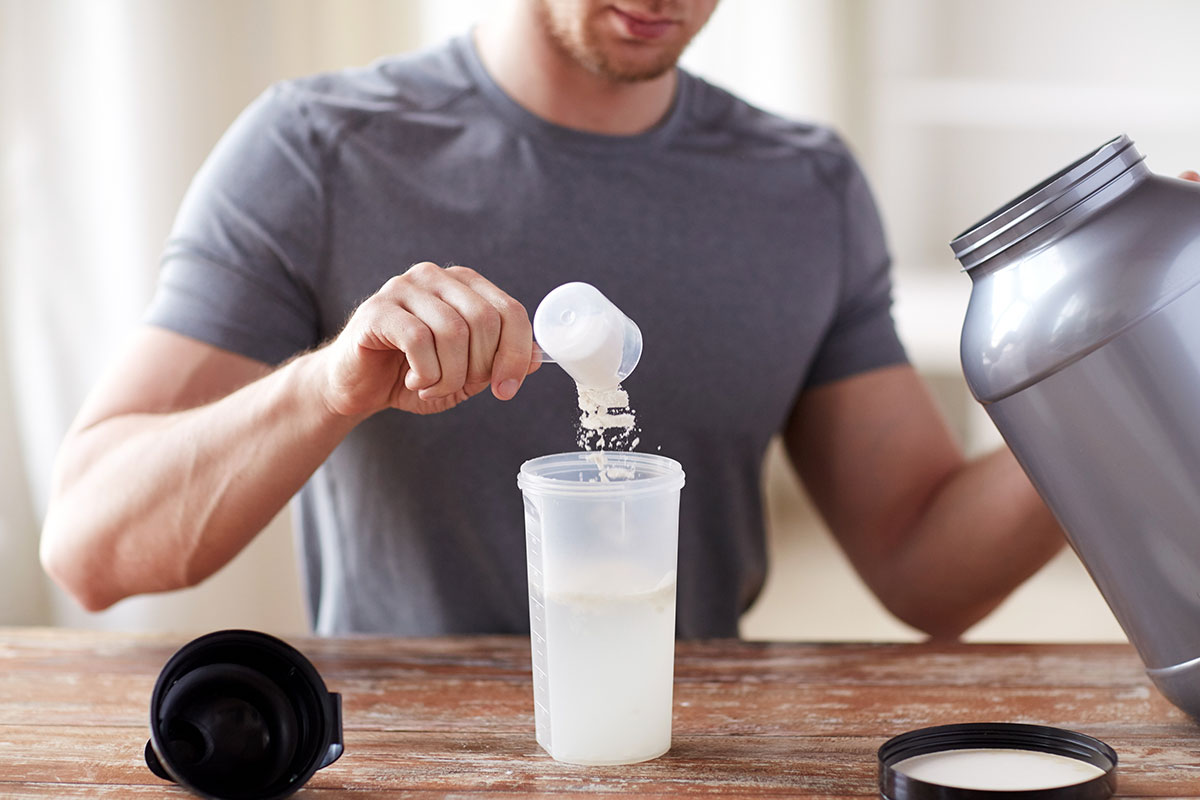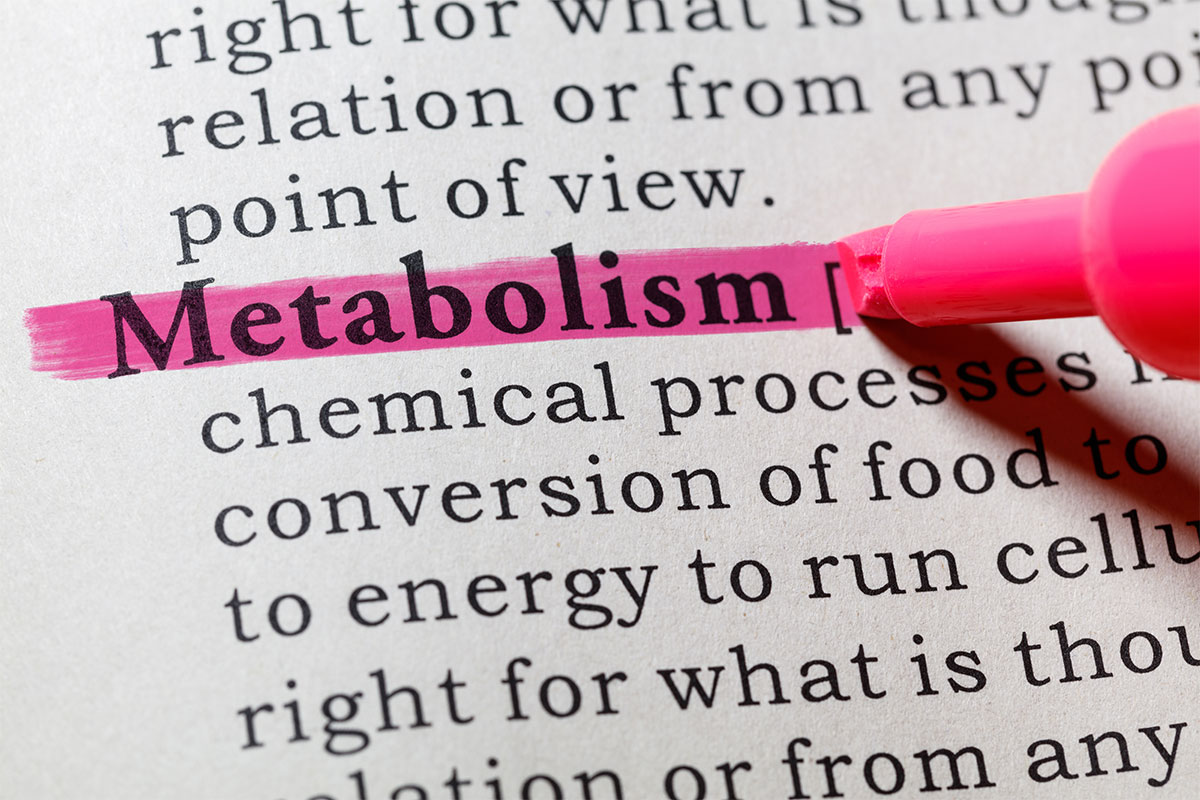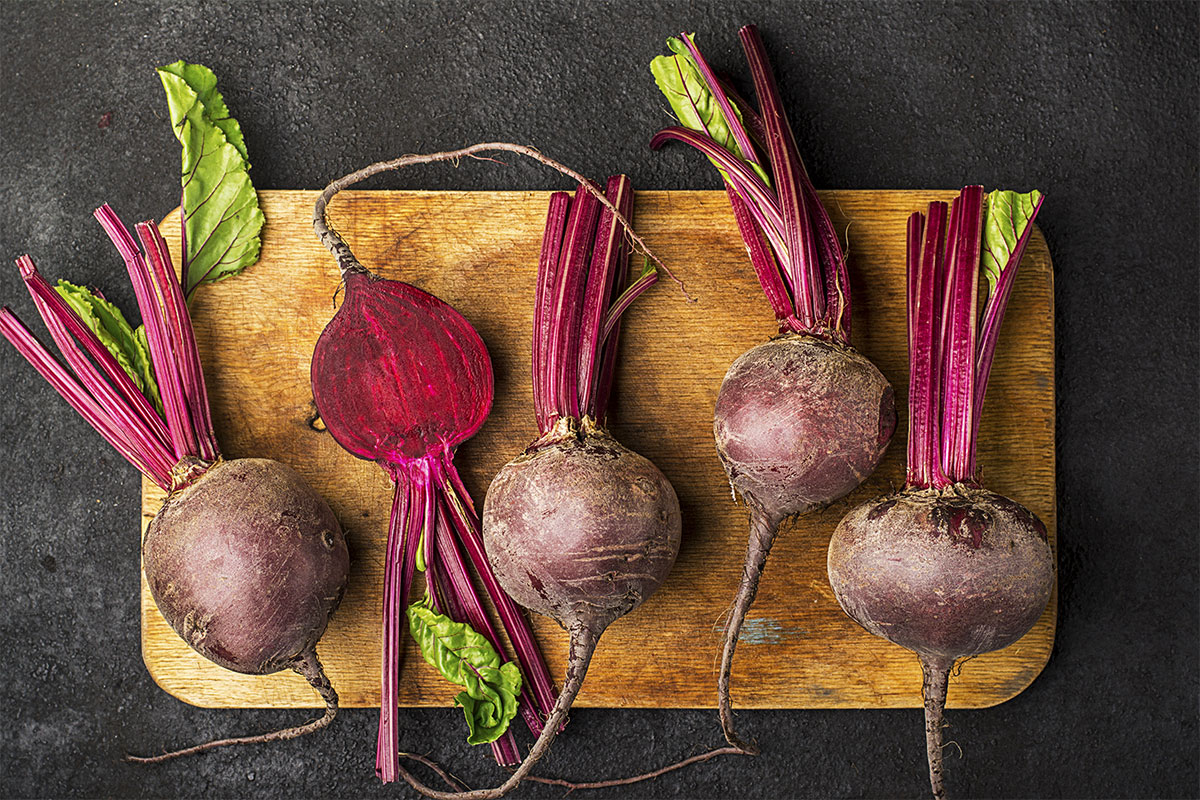Is There Such a Thing as Too Much Protein? | QA
Debbie James, RDN, helps answer a reader’s question about how much protein is too much for the body to process.


Hi, I’m a member of LA Fitness. I’ve been working out for a few years and I’m in very good shape. I’m 37 years old, 5’8″, 142 pounds, and cut. I don’t want to put on more weight or look bulky but want bigger muscles. I have 2 questions: 1) Do I need to change isolate protein every once in a while, as the body may get used to the same brand? 2) Do you recommend taking monohydrate creatine? I don’t know if I should take creatine, please comment. Thanks.
– Mo L.

Hi Mo, here are your answers!
1) If it’s not in combination with vitamins/minerals or other compounds, then it isn’t necessary to cycle the brand of isolate protein supplement. It’s not like you build up a tolerance to peptides. If you’re consuming the same isolate day in and day out, then I’d say to switch it up with REAL FOOD protein to provide amino acid and nutrient variety as well as solids to digest. Protein supplements are great for convenience and to save time but shouldn’t be relied upon for the basics, like meeting daily needs.
2) If someone is already following excellent workout and dietary plans to support muscle growth but wants more results, then creatine supplementation may be an intervention to try. Although your body makes some, additional creatine is useful for increasing creatine phosphate reserves to improve exercise performance and strength during heavy resistance training. Creatine monohydrate is the form most studied and shown to be safe and effective at 0.1 g creatine/kg of body weight. (Protocols for loading dose and maintenance vary.)
– Debbie J., MS, RD
This article should not replace any exercise program or restrictions, any dietary supplements or restrictions, or any other medical recommendations from your primary care physician. Before starting any exercise program or diet, make sure it is approved by your doctor.
Some questions have been edited for length and/or clarity.
 Have a nutrition question? Our registered dietitian is ready to help!
Have a nutrition question? Our registered dietitian is ready to help!
Email nutrition@lafitness.com or submit your question below and it may be featured in an upcoming article!
Debbie James, RDN, helps answer a reader’s question about how much protein is too much for the body to process.
Debbie James, RDN, helps answer a reader’s question on breakfast and working out.
Debbie James, RDN, helps answer a reader’s question on introducing teens to better nutrition.


Hi, my name is Jordan, I am a new member of LA Fitness and I also have a personal trainer. He thought it would be a good idea to contact you to get some pointers on how I should eat. I am lost when it comes to that. I am 377 lbs., 5’4”, and 31 years old. Also, what should I look for when eating food? Calories? Fat? Sugar? Thank you!
– Jordan

I’m so glad you reached out! It can be overwhelming navigating thousands of food choices and not knowing where to start. Try following these steps to begin:
For overall wellness, increasing vegetable intake is usually step one. Veggies are low-calorie and high nutrient-dense foods that you can eat a multitude of ways – as an entrée, side dish, snack, raw, juiced, oven-baked, and pureed in soup or sauce. For an equivalent 100 calories from starch or animal meat/milk, you can get nearly an equal amount of protein from vegetables. Aim for 3-5 vegetables daily.
Step two would be to choose the healthiest foods in other groups – raw fruit, whole grain products, lean meats, and plant fats. Examples would be a whole apple vs. applesauce, baked potato vs. French fries, baked fish vs. fish sticks, and avocado vs. cheese. You don’t need a formal education to identify wholesome choices, though reading labels can help you determine which choice within a food group is lowest in calories, fat or sugar, based on your personal health goals.
Next, balance food groups to get the nutrients you need by making ¾ of your intake from vegetables, grains, beans, fruit and nuts/seeds, remaining ¼ from animal sources. Shifting from a ham & cheese 3-egg omelet to a spinach & mushroom 1-egg scramble in a whole wheat tortilla with salsa exemplifies this balance.
Portion control is step four. You need to pay attention to the actual amount you eat! A couple tablespoons of unsalted nuts are adequate, a bowlful is too much. A few ounces of pork tenderloin are good, a half-pound is excessive.
That’s enough to get you started without getting too detailed or bogged down in ‘food rules’ that can de-motivate you. Keep following us for helpful nutrition and healthy living advice!
– Debbie J., MS, RD
This article should not replace any exercise program or restrictions, any dietary supplements or restrictions, or any other medical recommendations from your primary care physician. Before starting any exercise program or diet, make sure it is approved by your doctor.
Some questions have been edited for length and/or clarity.
 Have a nutrition question? Our registered dietitian is ready to help!
Have a nutrition question? Our registered dietitian is ready to help!
Email nutrition@lafitness.com or submit your question below and it may be featured in an upcoming article!
Debbie James, RDN, helps answer a reader’s question about how much protein is too much for the body to process.
Debbie James, RDN, helps answer a reader’s question on breakfast and working out.
Debbie James, RDN, helps answer a reader’s question on introducing teens to better nutrition.


I have been eating a lot less, not meeting requirements, gaining weight, and noticing muscle loss. I’ve noticed a lowered metabolism and inflammation from stress. What can I do to fix these things?
– Angela M.

That is surely a mixed bag of concerns, Angela. Address the first problem you mentioned based on why you think you are eating a lot less. Time constraints? Opt for healthy convenience foods like prepackaged bowls. Depression/anxiety? Engage with others during mealtime and include a few favorite comfort foods. To meet micronutrient needs at least, you can add a daily multivitamin/mineral to cover your bases until your intake improves. Physical activity is the main option to stimulate metabolism. While resistance exercise builds muscle, aerobic exercise burns calories to tackle both your physique concerns. Incorporate more anti-inflammatory foods to combat the effects of chronic inflammation.
These include tomatoes, olive oil, green leafy vegetables, nuts, fatty fish, berries and citrus fruit.1 Lastly, practice good stress-management techniques. In addition to exercise, you can step away from the stressor, smile & laugh, reach out to a trusted friend, and meditate.2
References:
– Debbie J., MS, RD
This article should not replace any exercise program or restrictions, any dietary supplements or restrictions, or any other medical recommendations from your primary care physician. Before starting any exercise program or diet, make sure it is approved by your doctor.
Some questions have been edited for length and/or clarity.
 Have a nutrition question? Our registered dietitian is ready to help!
Have a nutrition question? Our registered dietitian is ready to help!
Email nutrition@lafitness.com or submit your question below and it may be featured in an upcoming article!
Debbie James, RDN, helps answer a reader’s question about how much protein is too much for the body to process.
Debbie James, RDN, helps answer a reader’s question on breakfast and working out.
Debbie James, RDN, helps answer a reader’s question on introducing teens to better nutrition.


Will taking beet root help me gain muscle? How does it work?

The evidence for beetroot supplementation is slowly gaining ground. Some studies show that it may be helpful for intermittent, high-intensity workouts as well as endurance training. Surprisingly, as a newer ergogenic aid, beetroot juice (BJ) has already met the Australian Institute of Sport’s highest evidence classification for effectiveness – joining beta-alanine, caffeine, creatine, glycerol, and bicarbonate – at threshold doses for certain situations in sport.
Beetroot, like several green leafy vegetables, has very high nitrate levels. According to a laboratory assay, about 100 ml (~3.5 fl oz) of beetroot juice provides between 48-150 mg nitrate and 10 grams of beetroot powder provides 165 mg nitrate, whereas studies generally used 300-600 mg of nitrate.
Beetroot juice’s effect may come from nitrate’s role as a precursor to nitric oxide, a vasodilator which can enhance oxygen delivery to muscle tissue. A review of 9 studies concluded that “the improvements observed were attributed to faster phosphocreatine resynthesis which could delay its depletion during repetitive exercise efforts. In addition, [BJ] supplementation could improve muscle power output via a mechanism involving a faster muscle shortening velocity.”
As with all ergogenic aids, the theory is that by enabling stronger/longer workouts, the increased output will promote muscle growth. Currently, the magnitude of research supports beetroot juice’s impact on performance, not body composition. So keep working out!
– Debbie J., MS, RD
This article should not replace any exercise program or restrictions, any dietary supplements or restrictions, or any other medical recommendations from your primary care physician. Before starting any exercise program or diet, make sure it is approved by your doctor.
Some questions have been edited for length and/or clarity.
 Have a nutrition question? Our registered dietitian is ready to help!
Have a nutrition question? Our registered dietitian is ready to help!
Email nutrition@lafitness.com or submit your question below and it may be featured in an upcoming article!
Debbie James, RDN, helps answer a reader’s question about how much protein is too much for the body to process.
Debbie James, RDN, helps answer a reader’s question on breakfast and working out.
Debbie James, RDN, helps answer a reader’s question on introducing teens to better nutrition.

What nutrition tracking apps do you recommend? There are so many and I want to know more than just calories.

I’m glad you want to see how your present intake meets nutritional goals! The most comprehensive way is to use a diet analysis program with an extensive database, preferably based on the USDA’s Food Composition Database. Finding an app that can do what computer software or a website can do may be a challenge, but you can get close since the database is public domain and can be accessed by app developers for free.1
Track by Nutritionix is comprehensive, boasting the largest verified food database.2 Consider MyFitnessPal, one of the top dietitian-recommended apps.3 If at goal weight, you may want to focus on nutrients not calories, like Foodility does.4 Calorie Counter by FatSecret offers the ability to see your average for the month, giving you an overall picture.5 Which app you choose may also depend on cost, ease of use, user reviews, and other factors tracked or calculated. Yazio includes an extensive exercise list6 while MyPlate Calorie Counter also helps you keep track of water intake.7
Don’t forget that to get an accurate assessment or your diet, tracking several days is best. Enter everything you eat and drink, the amounts, the actual method of preparation, and all condiments for at least 3 days. The more detailed and specific you are in entering what you ate, the more accurate the report will be. Technology is improving, and the ease is tempting, but don’t exclusively rely on photographic or scanned UPC label inputs.
Though assessing your diet can be an impetus for change, there is no need to constantly analyze what you’re eating every week. What you do with the information gleaned is more important than religiously recording intake. We could all stand to replace smartphone minutes with activity anyway!
Disclaimer: Author and Fitness International, LLC does not endorse or promote any particular nutrition app. Those mentioned are for reference and comparison only.
References:
– Debbie J., MS, RD
This article should not replace any exercise program or restrictions, any dietary supplements or restrictions, or any other medical recommendations from your primary care physician. Before starting any exercise program or diet, make sure it is approved by your doctor.
Some questions have been edited for length and/or clarity.
 Have a nutrition question? Our registered dietitian is ready to help!
Have a nutrition question? Our registered dietitian is ready to help!
Email nutrition@lafitness.com or submit your question below and it may be featured in an upcoming article!
Debbie James, RDN, helps answer a reader’s question about how much protein is too much for the body to process.
Debbie James, RDN, helps answer a reader’s question on breakfast and working out.
Debbie James, RDN, helps answer a reader’s question on introducing teens to better nutrition.
Be the first to know about exclusive
content, deals and promotions